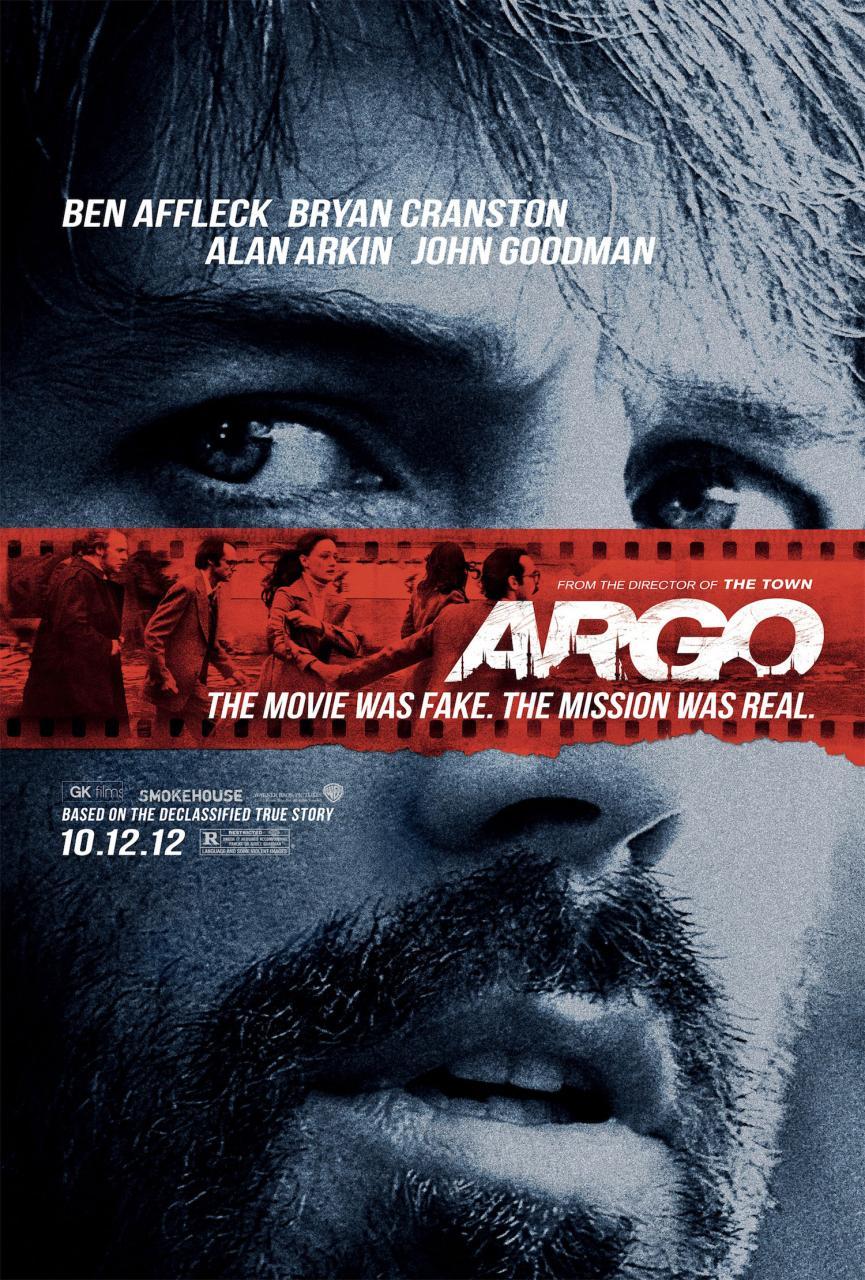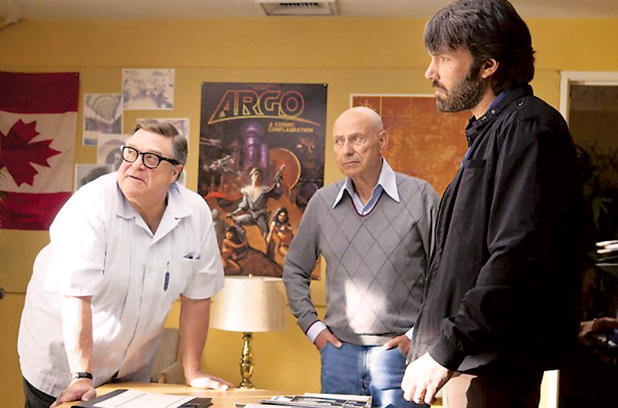

Director: Ben Affleck, 2012 (R)
In November 1979 a mob of revolutionary Iranians stormed the American Embassy in Tehran, took over 50 hostages and began the 444 days of captivity we all remember. But 6 Americans escaped that day and found shelter in the Canadian Ambassador’s home. Argo tells the now-declassified, true life tale of how we brought these six home.
Ben Affleck has made some poor choices in his acting roles (consider Jersey Girl and Gigli), but he has crackerjack selections as a director. His debut, Gone Baby Gone (starring his brother Casey Affleck), was one of the best films of 2007. The Town (starring himself), his second, continued his run of top-flight films. And now, he is once more at the top of his game. This compelling political thriller features terrific actors, engaging script and excellent cinematography that puts slap bang in the middle of the crisis.
The film opens with a short storyboard history of Iran, from biblical times to the post-Shah Iranian Revolution. And moves to a tense set-up with the mob taking over the embassy. It never lets on the tension. But Affleck counters the tension with well placed humor, mostly from John Goodman (The Artist) and Alan Arkin (Sunshine Cleaning) and a pacing that is pitch-perfect.
After 66 days with Canadian Ambassador Ken Taylor (Victor Garber, The Music Man), daily facing the possibility of discovery and death, the Canadians want the Americans gone. Back in Washington, various agencies run through plans to get them out. But CIA exfiltration expert Tony Mendez (Ben Afleck, directing himself once more) comes up with the “best of the bad ideas”: to pose as a Canadian film crew scouting locations for a film. He would be a producer, while the six would be his crew. He would fly in alone and fly out with them. Risky, certainly. Possible, yes.
With the plan green-lighted, Mendez needs to be convincing. And he turns to old pal John Chambers (John Goodman), a Hollywood make-up artist. Chambers, in turn, brings producer Lester Siegel (Alan Arkin) into the mix. But to create a plausible backstory, they need a script, a poster, and an office. They come up with Argo, a sci-fi film.
 The scenes with Goodman and Arkin, introducing Mendez to the fakeries of Hollywood are hilarious. They provide excellent counterpoint to the reality of the hostages. But it also shows how even these cynics get behind the cause and the nation’s need.
The scenes with Goodman and Arkin, introducing Mendez to the fakeries of Hollywood are hilarious. They provide excellent counterpoint to the reality of the hostages. But it also shows how even these cynics get behind the cause and the nation’s need.
One scene in particular stands out early in the film. Affleck weaves three sets of speakers together into one montage. We see President Carter speaking on TV about the hostages. Another shot shows a female revolutionary in Iran declaiming the evils of America. And back home in Hollywood, Siegel has a group of actors reading the script of Argo in a press event. This surreal scene brings the reality of the fictional film’s purpose into focus.
Once Mendez gets to Iran and meets the six, he finds them fearful and frustrated. Their lack of trust in his plan complicates things and forces some self-disclosure. Indeed, this focus on fear and faith, captivity and freedom has been explored by Stacey Tuttle in her review for the Shepherd Project. In that review she compares (almost equates) the CIA to Christianity and explains how our jobs or vocations are cover stories for our real job of freeing those held captive by Satan. Her review and insight is well worth reading.
Back in Iran, when Mendez’s CIA boss Jack O’Donnell (Bryan Cranston) calls to tell Mendez that the CIA has called the plan off, the crisis hits deep and rocks Mendez. He has put his life on the line for the six Americans, and he says, “We are responsible for these people.”
Aside from captivity and freedom dealt with by Stacey Tuttle, responsibility is the other key theme. Mendez realized the responsibility of the American government and that he had, too. These six had worked hard for the government and deserved more than to be discarded. They needed him. He was responsible for their escape.
How about us? Who are we responsible for? Who is dependent on us? Obviously, our family members, spouses and kids. But what about friends, church members, co-workers? How about the strangers we encounter along the paths of our days? How does our Christian faith inform us in this regard?
Certainly, the apostle Paul tells us we should provide for our families first (1 Tim. 5:8). There lies a primary responsibility. But John commands us to “love one another” (Jn. 13:34). Love requires responsibility. So, in a sense, we are responsible for others in the family of Christ. And Matthew’s command, “Therefore go and make disciples of all nations“ (Matt. 28:19), lays on us a responsibility for others.
So, like Mendez, not only must we look at our lives as opportunity to help others find freedom from sin’s captivity (Col. 1:13), but we must we accept the responsibility for others. We can accept this responsibility with grace, and demonstrate it with love: “Greater love has no one than this: to lay down one’s life for one’s friends” (Jn. 15:13). Jesus laid down his life for us (1 Jn. 3:16). We must face the question he asks us, ““Will you really lay down your life for me?” (Jn. 13:38)
Copyright ©2012, Martin Baggs


No comments:
Post a Comment